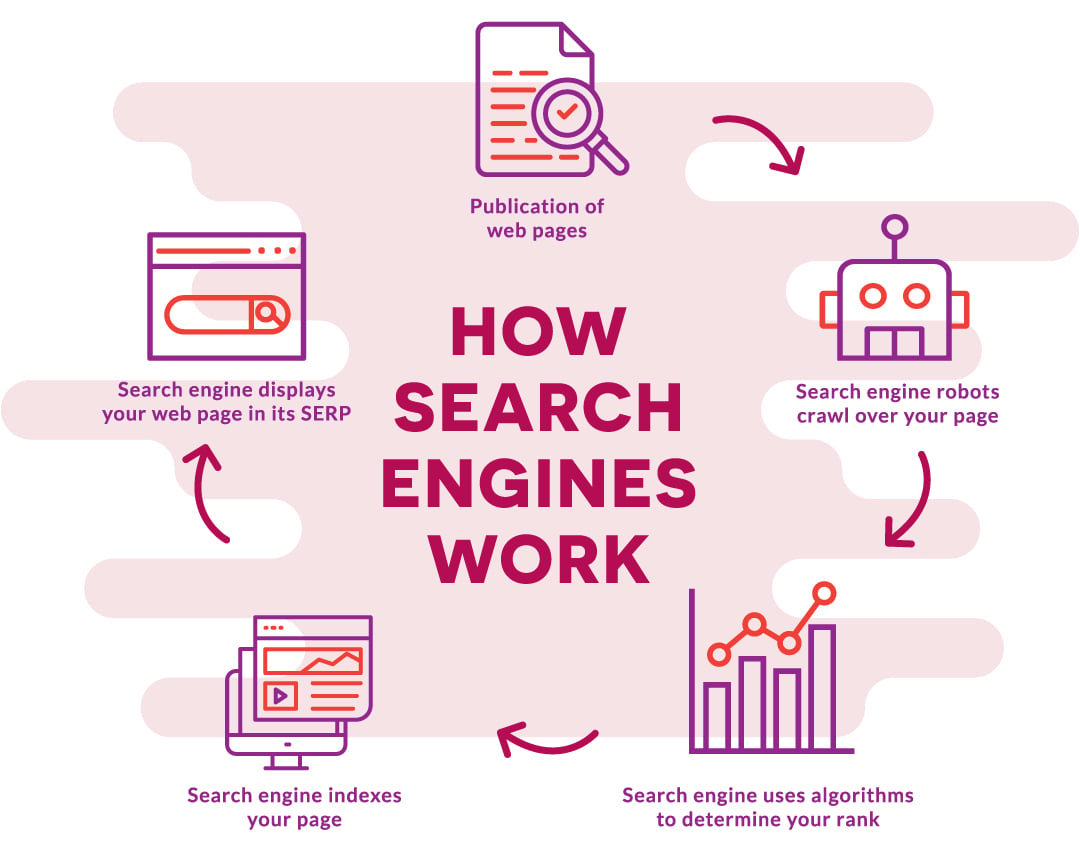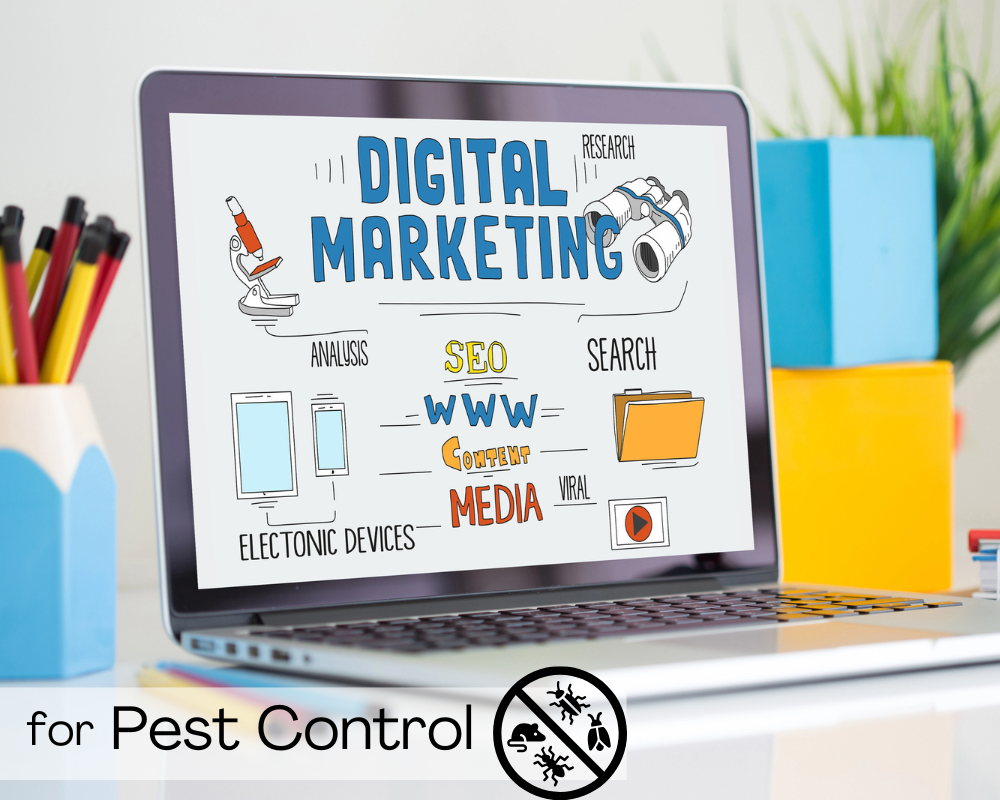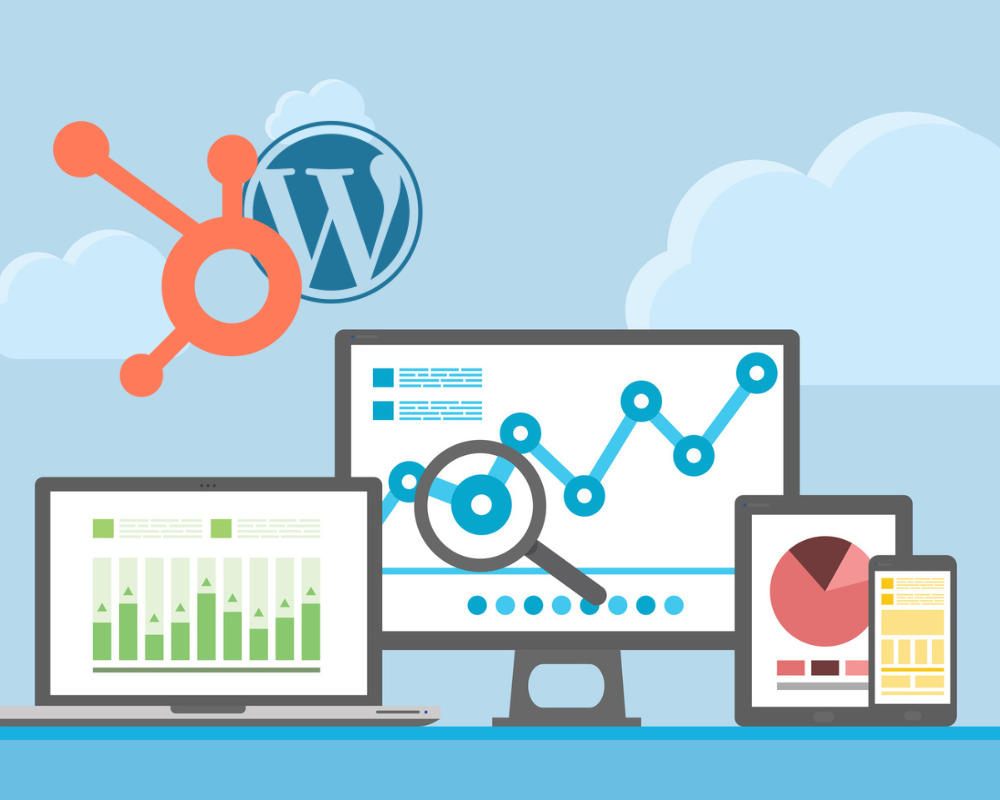What is SEO?

You may know that SEO — Search Engine Optimization — is important to your digital marketing, but exactly what is SEO? And why should you care about it?
In the simplest terms, SEO is the process of improving your website so that more people find it when they’re using search engines like Google, Bing, and others to find products, services, or answers to questions related to your business.
Good SEO makes your website more visible to people who need what you offer by improving your search engine ranking. The goal is to get your web pages to rank high enough to show up on page one of the search engine results page (SERP) for search queries related to your business.
How Do Search Engines Work?
Before you can improve your website to show up on page one of searches, you need to understand the basics of how search engines work.
The basic process looks like this:
- You publish web pages
- Search engine robots crawl over your web pages
- Search engine algorithms determine your web pages’ ranking
- The search engine indexes your web pages in its database
- The search engine displays your web page in its Search Engine Results Pages (SERP) when someone types in a search query

The only part that you have actual control over is the first step — the web pages that you publish.
3 Major Factors that Affect Search Engine Rankings
As far as the SEO process is concerned, your website and individual web pages have to satisfy three major criteria that search engines are looking for:
- Great content
- Page performance and loading speed
- Backlinks
Let’s look at each of these in a little more detail …
1. Great Content
Search engines are in the business of answering viewers’ questions, so they look for — and reward — content that does the best job of answering those questions.
So search engines are looking for websites that publish this valuable content that answers questions. That content may be published in any of the following forms:
- Blog posts
- FAQ (Frequently Asked Questions) pages
- Infographics
- Photos
- Videos
- Audio files
- GIFs
This list is certainly not all-inclusive. Whatever form it takes, when you publish great content, you improve your SEO.
And the more content you publish, the better. Because when the search engines see lots of content … when they see a large variety of content … and when they see that the content is published on an ongoing basis … the search engines conclude that your website is relevant to what people are searching for.
2. Page Performance and Loading Speed
Page performance and loading speed don’t answer any user questions, but they affect the user’s experience with your website and individual web pages.
Like it or not, how your website performs and how fast it does so reflects on the reliability and credibility of your company. And how people see your website and company transfers a bit to how they see the search engine that served your website to them in the first place.
So, search engines reward websites that perform well and load fast because it makes the search engine look good as well.
Factors that affect performance and speed are things that most website visitors don’t even see. But they’re important all the same. Some of these factors are the following:
- Meta Descriptions
- Image Descriptions
- Page Title URLs
- Page Formatting
- Page Speed
- Linking
When you improve your website's performance, you improve your SEO.
3. Backlinking
Backlinks are links from another website to a page on your website. For example, when we quote Backlinko as explaining that …
“Google and other major search engines consider backlinks ‘votes’ for a specific page. Pages with a high number of backlinks tend to have high organic search engine rankings.”
… and when we put a link on this page to the Backlinko page with that quote (which we just did), that’s a backlink.
To be clear, it’s a backlink for Backlinko. Not for us.
And that’s why they’re so valuable.
Backlinks are other people — not you — telling the search engine that your content is valuable.
So how do you get other people to do this? How do you get these third-party backlinks?
You can ask for them, but primarily it goes back to publishing great content. In this case, Backlinko didn’t ask us to put a link to their site on this page. We did that because it was great content that helped us answer your questions about SEO.
When you publish great content, the same thing will happen for you, too.
In addition to the third-party backlinks that you don’t have much, if any, control over, there also are some that you do control. For example:
- When you provide a link to your website on your Google Business Profile (formerly your Google My Business account), that’s a backlink.
- When you provide a link to your website from social media — both your profile and social media posts and comments — those are backlinks.
- When there’s a link to your website from review sites, that’s a backlink.
There’s an entire sub-strategy to getting backlinks for SEO. It’s both an art and a science, but it’s totally doable.
We’re Here to Help
As you can see, SEO is a process with a lot of moving parts involving both strategy and technology. To make it even more complicated, Google changes the rules every year or so with new updates to the algorithm and ranking system.
This is why so many smart business leaders turn to SEO experts like those here at WorldLight Media for help.
We do what we do best and take care of all the SEO details so you can do what you do best in running your business.
Ready to learn more about how we can help you harness the power of SEO so that more people find you when they’re searching for solutions to their problems? Let’s talk! Click here to start the conversation.







